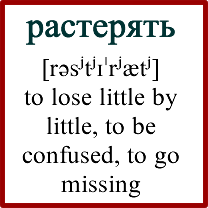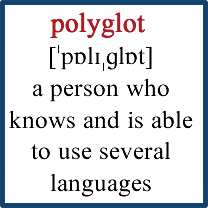According to many reports, a language becomes extinct every two weeks, on average, and over the next century, up to 90% of the world’s languages will cease to be spoken.
This is an oft-repeated story, but is it true?
According to Mike Campbell of Glossika, the actual data on language death tells a different story. He wrote a blog post about this, and made a video:
If a language dies every two weeks, you would expect an average of 26 to die each year, and 260 each decade. This is not what is happening at the moment, and new languages are even being discovered. Or at least forms of speech that were formerly classified as dialects are being reclassified as separate languages.
These the languages that have become extinct since 2008. The dates given are for when the last known native speakers of these languages died.
- Eyak (I·ya·q), a Na-Dené language that was spoken in south central Alaska in the USA until 2008. Efforts are being made revive it.
- Bidyara, a Pama-Nyngan language that was spoken in Queensland in Australia until 2008. Efforts are being made revive it.
- Pataxó (Pataxó Hã-Ha-Hãe), a Maxakalían language that was spoken in the Bahia region of Brazil, until 2009.
- Kora (Aka-Kora), a Great Andamanese language that was spoken in the Andaman Islands, a part of India until 2009.
- Nyawaygi, a Pama-Nyngan language that was spoken in the northeast of Queensland in Australia until 2009.
- Bo (Aka-Bo), a Great Andamanese language that was spoken in the Andaman Islands, a part of India until 2010.
- Cochin Portuguese creole, an Indo-Portuguese creole that was spoken on Vypeen Island in Cochin in the state of Kerala in southern India until 2010.
- Pazeh, an Northwest Formosan language that was spoken in central Taiwan until 2010. Efforts are being made revive it.
- Lower Aranda / Lower Arrernte (Alenjerntarrpe), a Pama–Nyungan language that was spoken in the Northern Territory of Australia until 2011.
- Holikachuk (Doogh Qinag), a Northern Athabaskan language that was spoken in the village of Holikachuk (Hiyeghelinhdi) on the Innoko River in central Alaska until 2012.
- Upper Chinook (Kiksht), a Chinookan language that was spoken along the Colombia River in Oregon in the USA until 2012. Efforts are being made to revitalise the language.
- Dhungaloo, a Pama–Nyungan that was spoken in Queensland in Australia until 2012. The current status of this language is not certain
- Yurok (Puliklah), an Algic language that was spoken in Northern California until 2013. It is currently being revived.
- Livonian (Līvõ kēļ), a Finnic language that was spoken in Latvia until 2013, and which is being revived.
- Klallam (Nəxʷsƛʼayʼəmúcən), a Salishan language that was spoken in Washington State in the USA, and in neighbouring areas of Canada, until 2014. It is currently being revived.
- Thao (Thaw a lalawa), a Northern Formosan language that was spoken in central Taiwan until 2014, or maybe more recently. Efforts are being made revive it.
- Wichita, a Caddoan language that was spoken in Oklahoma in the USA until 2016. Efforts are being made revive it.
- Mandan (Nų́ų́ʔetaa íroo), a Siouan language that was spoken on Fort Berthold Reservation in North Dakota in the USA until 2016. Efforts are being made revive it.
That’s a total of 18, plus a couple of dialects I haven’t listed, over the past decade – slightly less than the predicted 260. Moreover, while there are no native speakers of these languages, efforts are being made to revive some of them.
More information about recently extinct languages, language death and language revitalization:
https://en.wikipedia.org/wiki/Extinct_language
https://en.wikipedia.org/wiki/Language_death
http://rosettaproject.org/blog/02013/mar/28/new-estimates-on-rate-of-language-loss/
https://en.wikipedia.org/wiki/Language_revitalization


